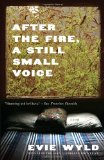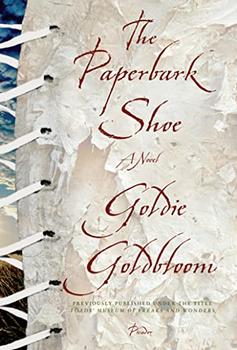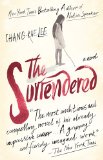Summary | Excerpt | Reading Guide | Reviews | Beyond the book | Read-Alikes | Genres & Themes | Author Bio

Suffering from uncontrollable rage and an inability to handle relationships, Frank Collard escapes from Sydney to the small beach town of Mulaburry on the southeast Australian coast. There, amid the cane fields, rip tides and other lost souls, haunted by the Creeping Jesus in the dark, he fights with his demons and comes to terms with his history.
Evie Wyld’s impressive first novel employs the harsh and often dangerous Australian environment as a setting for the loneliness and devastation that can ruin a man’s life after he returns from war. Asked about writing a book almost completely from a male perspective, she says, "I’ve always leant toward a more masculine voice. It was quite a nice thing to do to sit at my desk and to have to physically imagine myself as a man and sort of stomp around the flat a bit." She wrote the book as a tribute to her beloved uncle who fought in Vietnam, only to return traumatized.
In After the Fire, the trauma reaches through three generations. Frank Collard's grandfather fought in Korea and his father went to Vietnam. Though these two men were to a certain degree rescued by caring wives, neither one could conduct life successfully or be a good father after returning to the civilian world. Through chapters alternating between Frank's viewpoint and that of his father Leon, the reader discovers along with Frank the tragic history of this family. It is their inability and unwillingness to talk about their war experiences that creates the legacy of suppressed rage, alcoholism and depression that runs like a live wire through the generations of Collards.
The book requires a reader with the necessary toughness to confront these horrors. That said, the story should interest both men and women, since it is usually the men who go to war and the women who wait, worry and take care of the men when they return. I would also recommend it to adult children of soldiers or young adults who may be deciding whether or not to join the military. Certainly, Ms. Wyld does not glorify war.
When I finished the story I was left with scenes of jungles, death, loss and sorrow, but also vivid vignettes of young men discovering their sexuality, forming connections with friends, and finding peace of mind through creativity. Most strongly I felt a sense of redemption. Leon found his in the desert and later in faith. Best of all, though, is a character in Frank's story: seven-year-old Sal, the feral child of Frank's neighbors in Mulaburry, scarred as badly as any veteran by the losses in her short life, who through her remaining innocence and stoic insistence on having her own way, brings together the damaged adults around her to create a new family.
About the Author
 Evie Wyld grew up in Australia and London, where she currently lives. She received an MA in Creative and Life Writing at Goldsmiths, University of London, and was featured as one of Granta’s New Voices in May 2008.
Evie Wyld grew up in Australia and London, where she currently lives. She received an MA in Creative and Life Writing at Goldsmiths, University of London, and was featured as one of Granta’s New Voices in May 2008.
View a video in which Wyld explains the backstory to the book.
![]() This review was originally published in The BookBrowse Review in October 2009, and has been updated for the
November 2010 edition.
Click here to go to this issue.
This review was originally published in The BookBrowse Review in October 2009, and has been updated for the
November 2010 edition.
Click here to go to this issue.

If you liked After the Fire, a Still Small Voice, try these:

by Goldie Goldbloom
Published 2011
Set in 1940s Australia, The Paperbark Shoe is a remarkable novel about the far-reaching repercussions of war, the subtle violence of displacement, and what it means to live as a captive - in enemy country, and in one's own skin.

by Chang-rae Lee
Published 2011
A stunning story about how love and war inalterably change the lives of those they touch, The Surrendered is elegant, suspenseful, and unforgettable: a profound meditation on the nature of heroism and sacrifice, the power of love, and the possibilities for mercy and salvation.
Your guide toexceptional books
BookBrowse seeks out and recommends the best in contemporary fiction and nonfiction—books that not only engage and entertain but also deepen our understanding of ourselves and the world around us.